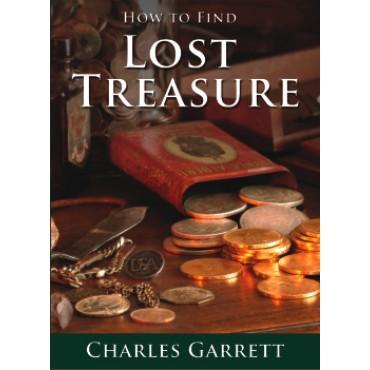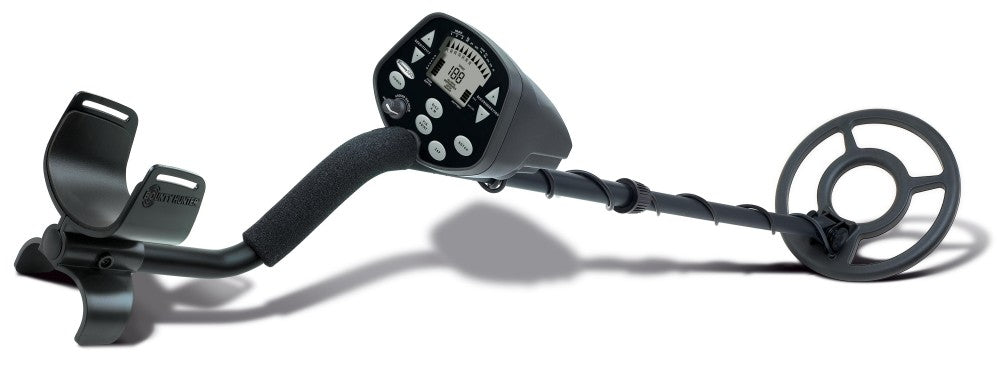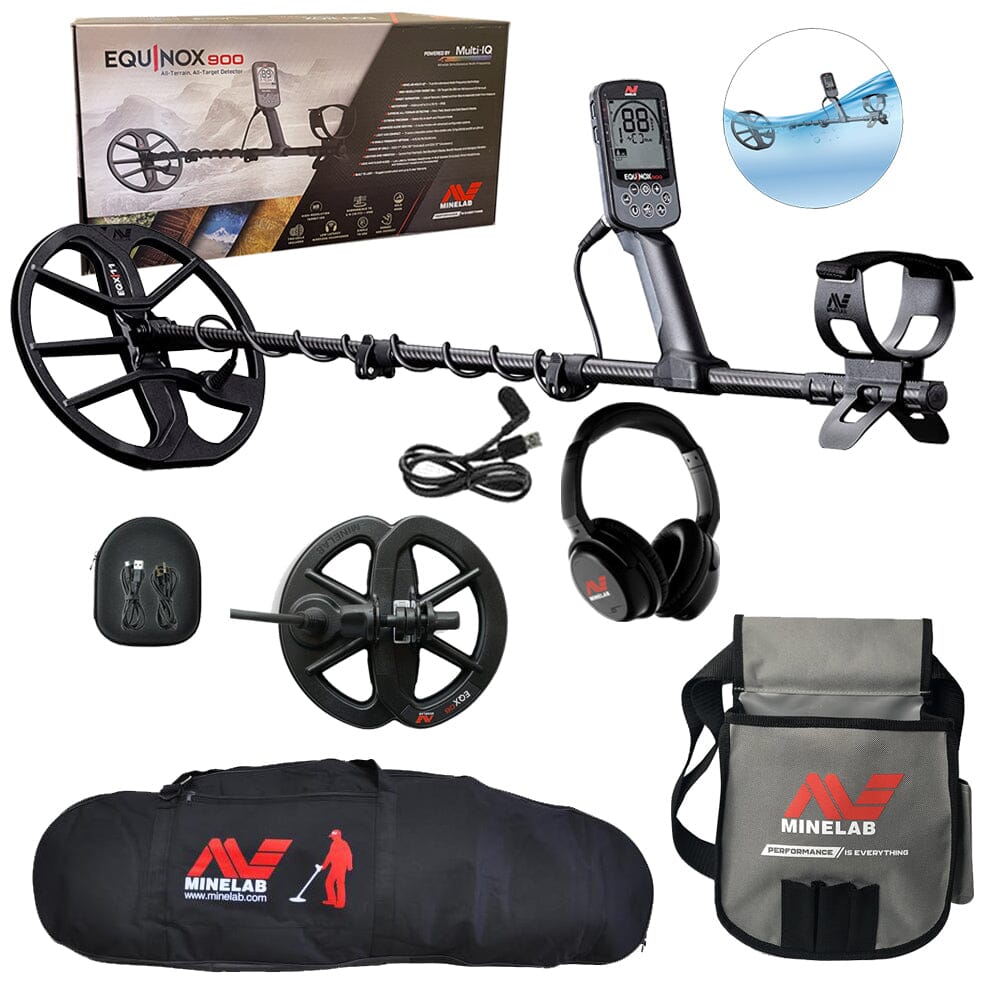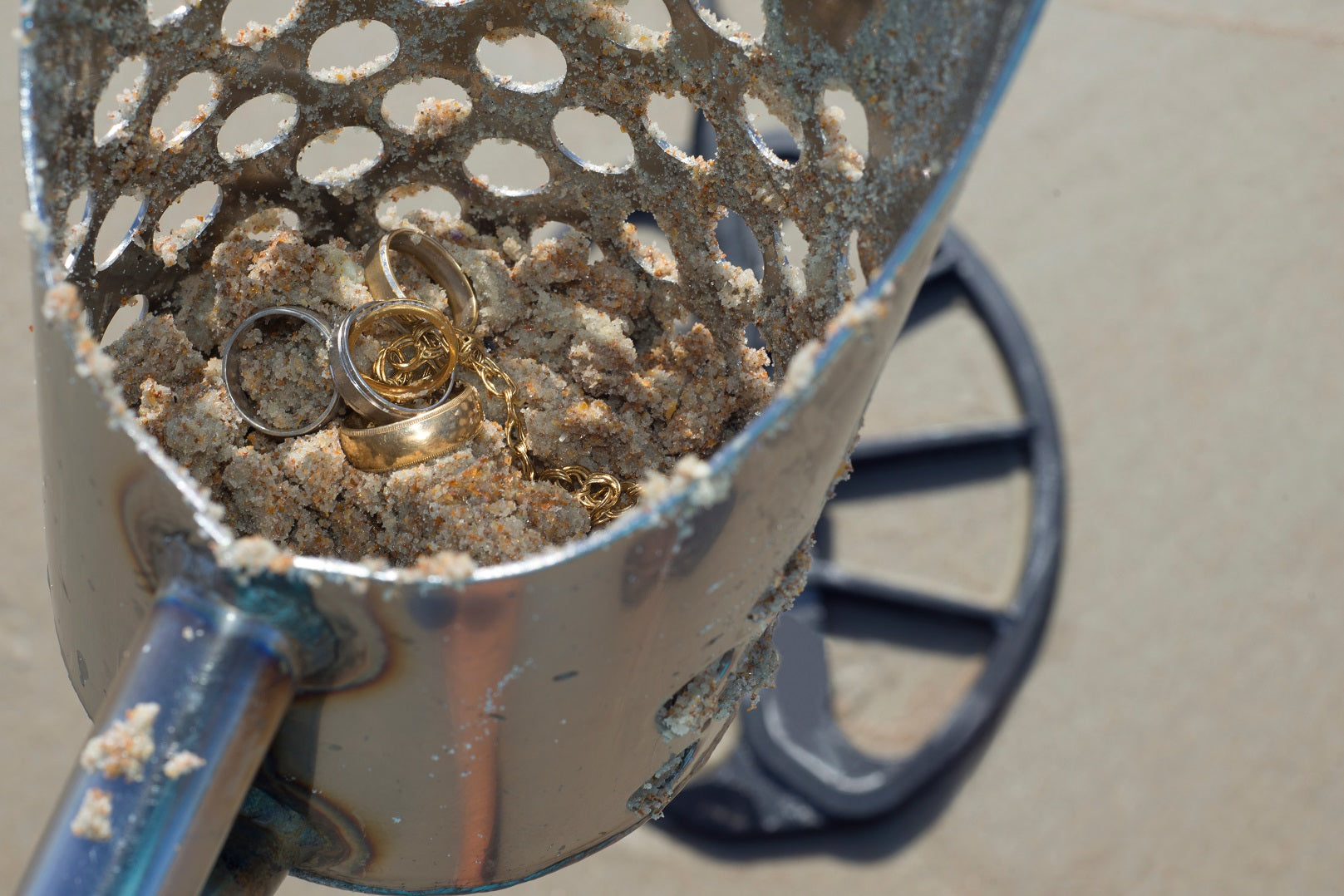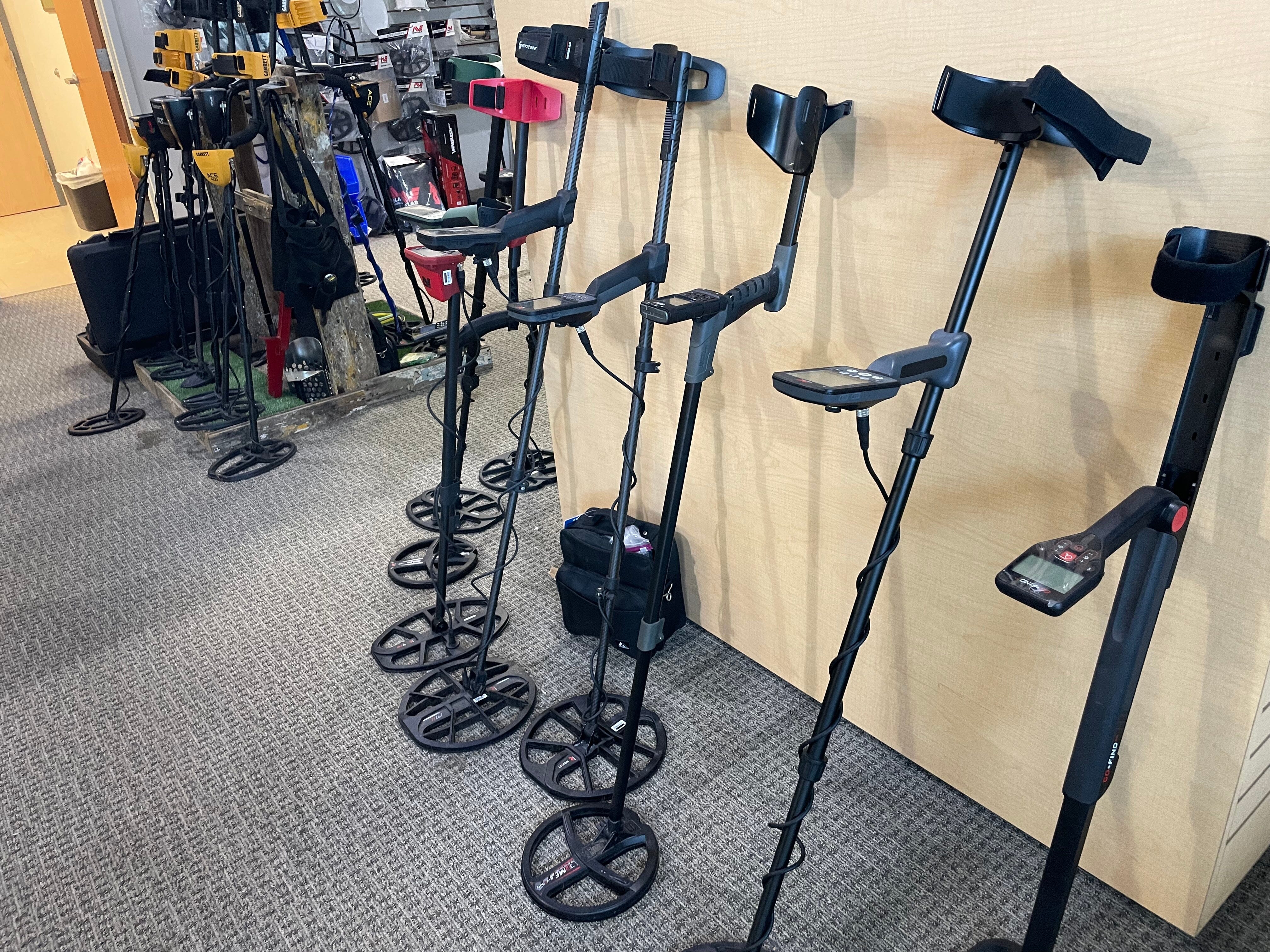Menu
FAQ: Where is the best place to metal detect?
People who are new to the sport of metal detecting often find themselves in a position where they have done the time to research the types of metal detector that suites them best. They have invested the time and money in order to have all the weapons they need in their arsenal to detect. They are all geared up and ready to hit the field to find some treasure. Then it hits them. Where do they go to metal detect?
Metal Detecting Parks
Quite often a new detectorist's first inclination is to head directly to the nearest park. And, while this can be a great training ground to learn your metal detector, the fact is parks are the usually pounded by other detectorists. Don't get me wrong. You will find plenty of loose clad coins as they are constanly being dropped from peoples pockets as they are reacing in and out for other various items. You will also get plenty of experience finding pull tabs.
The Equinox 600 is an Excellent All Around Metal Detector
When metal detecting parks, there are typically some rules that need to be followed and quite often there are licenses requred to detect the parks. Let's say you have to pay $10 to get a license in a particular municipality, you have to dig quite a few dimes and pennies to make it pay off. And, while there are lots of rings and other jewelry items lost in parks, typically when you do find one, the rules will require you to turn that ring into the parks department to see if they can located the rightful owner. Metal detecting in parks does give you an opportunity to learn your metal detector. But there are lots of other places you can metal detect that do not originally come to mind for newbies.
Old Houses
When I say old houses, the first thing that may pop into your mind is some old victorian mansion that has been around since the 1700's. However, there are plenty of other properties to consider that would be considered old by most standards. Consider that silver currency was still widely used up into the 70's and some can still be found floating around today. So by "old" I mean properties that were occupied anywhere up to the70's. These were properties that were heavily occupied and received a lot of traffic. The older and the more occupied the better. So, to dial in even further, I like to tarket the neighborhoods that were build for soldiers returning from the world wars. So, houses built in the late 40s or early 50's are prime. These neighborhoods can be found all across the untied states and are frequently located near the heart of the community. Some of these areas still have the same structures on them and some of them are so that the old houses are long gone and have been replaced by brand new homes. The items beneath the soil however are often left undisturbed.
I know of one man locally that found several old silver dollars while landscaping in the back yard of his newly developed home. After doing some history he found out that somewhere on the development there was an old farmstead built on it. Apparently when the developer had excavated the property for development the coins had been spread around the entire development. He gained access to several home in the area and found that aparently a hoard of silver dollars had been spread around the neighborhood new home lots. After he bought a metal detector from us, last I heard from him, he had found about 20 of them and I assume he is still looking.
This type of metal detecting can be very fun and lucrative. The best ones are the properties that surround what used to be an old west or old colonial town. Specifically, where we are located in the Midwest, they were old cowtowns, mining towns, or simply incorporated towns that had little more than a post office, a general store, maybe a bank, and a sloon (perhaps a brothel and bath house as well). These properties have been human accumulation spots for a couple hundred years or more in many cases.
Getting permission in the proper fashion is a big part of gaining access to these properties. First, think of who you know that might be living on one of these properties. If you know someone, start there. Then, start talking to their neighbors as you see them. Explain to people what you do and why you do it. Don't focus on the treasure portion of the hunt. Let them know the truth. Rarely do you find anything valuable. More often than not you are simply removing trash. Don't be selfish. Offer to split any of the valuable finds and assure them you will show them everything you find. Most importantly let them know how you dig a proper plug to avoid any damage to their lawn.
If you don't know anyone living on such a property then you either need to do some knocking or talking. Speak to people you know. Let them know that you are into this hobby and how fun it can be. Once you get a little excitement built up ask them if they know of any properties that are old and offer to take them with you. This is why it is a good idea to have an extra metal detector. Not only is it a good idea to have a back up metal detector, it is a great tool to gain access to properties. I describe why in my article, Why Every Serious Metal Detectorist Needs Two or More Metal Detectors.
The Garrett AT Pro Metal Detector is an Excellent Relic Hunting Detector
Another thing to pay attention to in these older suburban and urban areas that were once bustling communities is when old sidewalks are being replaced. I know of many detectorists that pay attention to this and go hit the sidewalks when the old ones are ripped out and before they start installing the new ones. There is a small window of opportunity but it can pay off as newly revealed surface is virgin ground.
Old Rural Farm/Home Sites
Ever been driving out in the countryside and see a clump of trees growing out in the middle of a plowed or planted field? Ever wonder why the farmer didn't farm that portion of the field? Quite often it is because there is an old foundation within those trees that was easier for the farmer to plow around rather than to have to remove all of the old foundation stones. This is often the case here in Kansas. There are thousands of those types of sites scattered across our countryside.
Old home sites are fun to metal detect. You are certain to find something. Yes, there will be plenty of junk since there wasn't really trash service available and quite often you will come upon a "junk pile". But you will certainly find some interesting items. One time I found an entire barrel for an old muzzle loading shotgun, which I thought was pretty cool. Horse shoes, mule shoes, old wagon parts are quite often found metal detecting old home sites. Keep in mind that early in American history, banks were few and far between. People didn't trust them too much and often they hid their money beneath the earth for safe keeping. How much might still be out there?
Ghost Towns
Some of my favorite places, which can prove to be pretty lucerative, are old towns that are barely in existence if at all. Old plat maps are good ways to locate where these towns once stood. Below is a video on how to locate sites using Google Earth and old plat maps.
There are plenty of old towns that were around in the late 1700's that are still in existence. Don't blink or you may miss them driving down the road. Some of these tiny towns are nothing more than a couple houses and maybe a post office. But, there are plenty of them out there. Many of them are nothing but a plowed field. If you find one and gain access, it can be a thrilling experience.
Below is another video of us finding some old relics in a now vanished ghost town.
Old Military and Settler's Camps
Often people think of battle grounds (which are mostly off limits if owned by government) of good places to metal detect. Which, they are if you can gain access to them. But consider that those soldiers had to get to that battle ground and didn't necessarily camp there. Surrounding properties can be excellent metal detecting ground if you can gain access to them. Think - water source and start there as soldiers and livestock had to have a source of hydration and these made for great areas to bivouac. Additionally, there are several places where battles and skirmishes took place on private properties. You just have to do your research and asking around.
Where we live, (Kansas City area) there were tons of people traveling along the trails to get out west. These trails were huge and very long. All along these trails people had to camp and encountered a lot of Native resistance. These make great places to metal detect. Again, think water source first. But, really, anywhere along these old trails are potential places to find lost or stashed items.
Old Native American Encampments
This is a subject that can be very touchy. Of course it is never recommended to disturb what might be burial grounds, and any atifact items found on government owned land is out of reach. But, there are places scattered all across the country where small Native villages and camps were located. And, don't think that these folks only used stone tools. For centuries Native Americans were trading with early visitors. I have seen people successfully find old silver and gold coins as well as artifacts and jewelry at locations such as this. Plus, it is really neat when you find an old metal Indian arrowhead that was punched out of a piece of a metal bucket from the old west. These sites are located by doing a ton of research or by sheer chance. But, once you find one, it can be a very fun and interesting hunt.
Beaches
This may be an obvious one. If you live anywhere close to a beach, you should own a metal detector. Not only are they visited by hundreds if not thousands of jewelry wearing beachgoers every year, the metal detecting conditions are unbeatable. Ocean air, sunlight, and easy digging are only a few reasons why I feel beaches are the best place to go metal detecting. Water has been an important means of travel since the dawn of man. People are still finding lost treasure along the coasts that date back to the vikings. If you are lucky enough to live along the treasure coast, there is potential to find treasure from lost Spanish galleons as well. After a hurricane you will notice detectorists are more common on the beaches because of the chance of valuable items washing up to the beach. Just make sure you are aware of the ordinances in your area when metal detecting beaches. There are certain areas that are off limits due to turtle migrations, endangered bird species, and some parts of the beach may be claimed by a professional treasure hunting outfit.
On a Budget? The Nokta Simplex is a Good Beach Hunting Detector for The Price
These are my top places I like to metal detect and the ones I feel offer the best opportunities to find interesting and valuable treasure. I hope this clarifies the question for most people out there. Good luck and happy hunting!
Stay tuned to our blog for upcoming articles and episodes by following us on your favorite social media outlet to stay informed of releases:
YouTube: HighPlainsProspectors
Facebook: @highplainspropsectors
Instagram: #highplainsprospectors
Twitter: @HProspectors
Pinterest: @highplainspro0247
You Might Be Interested In
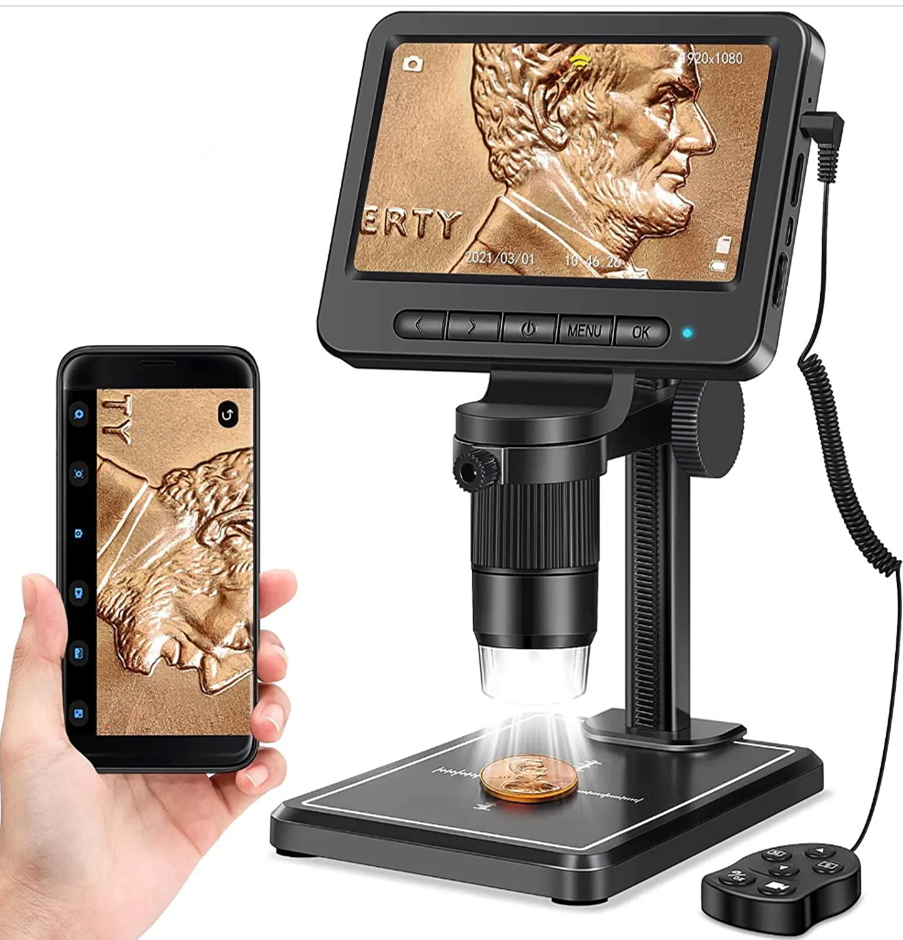
Coin & Relic Cleaning Supplies
Pair text with an image to focus on your chosen product, collection, or blog post. Add details on availability, style, or even provide a review.
- Choosing a selection results in a full page refresh.





